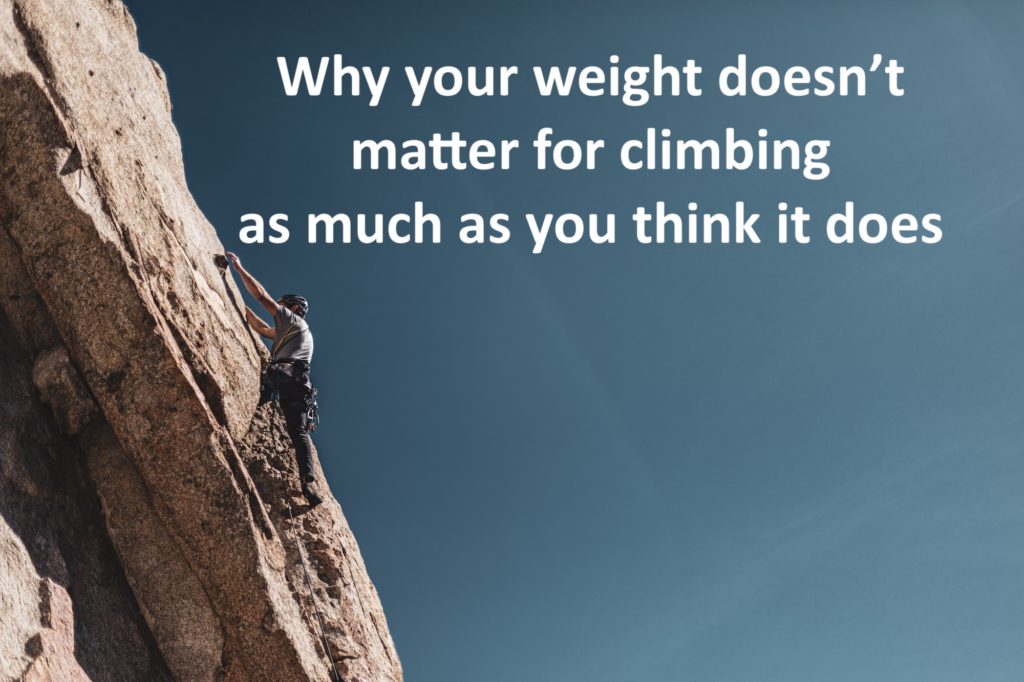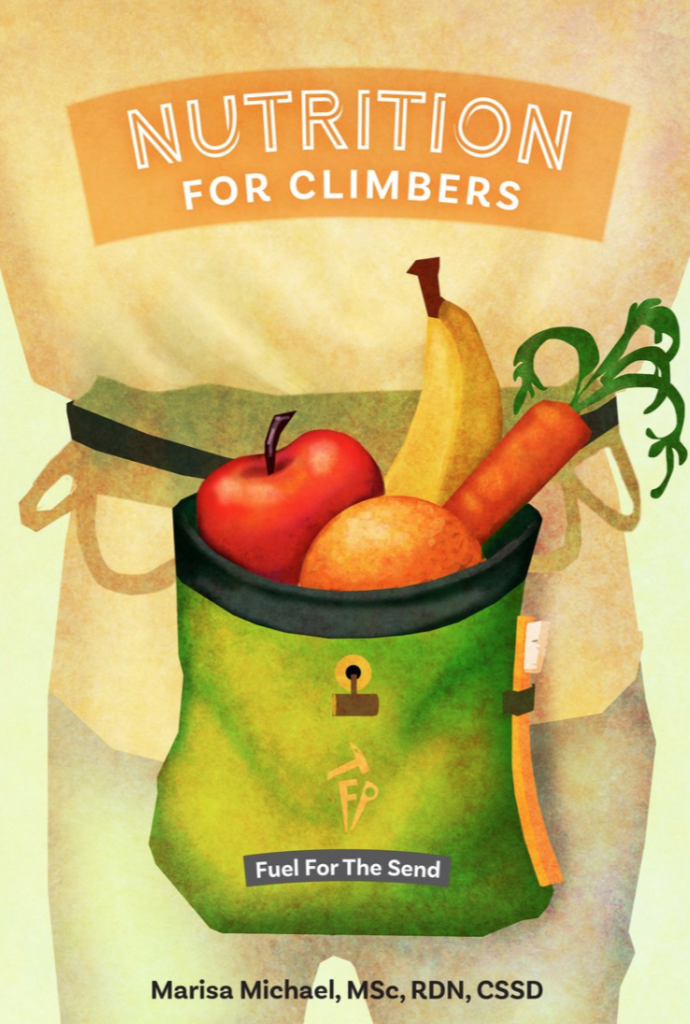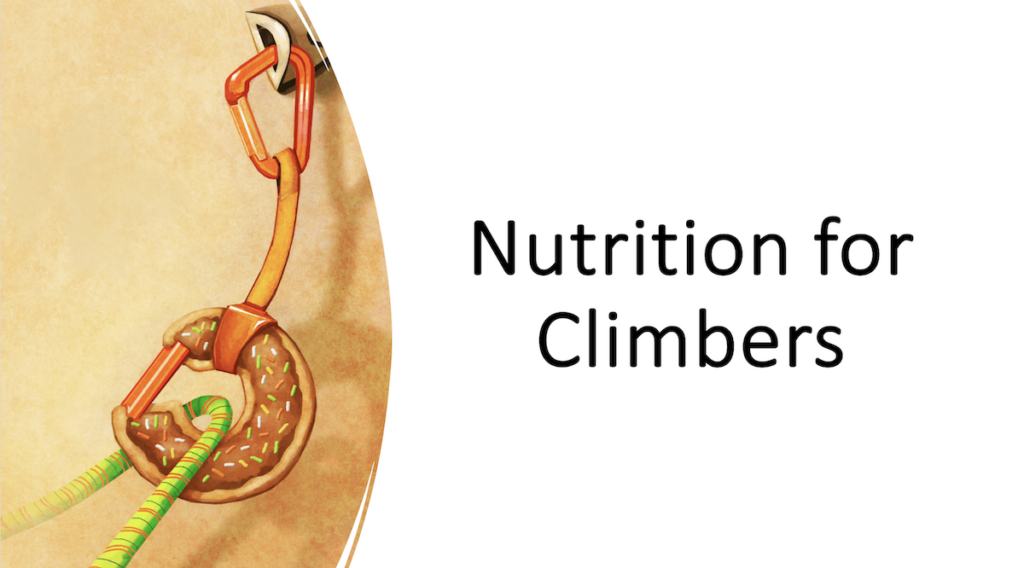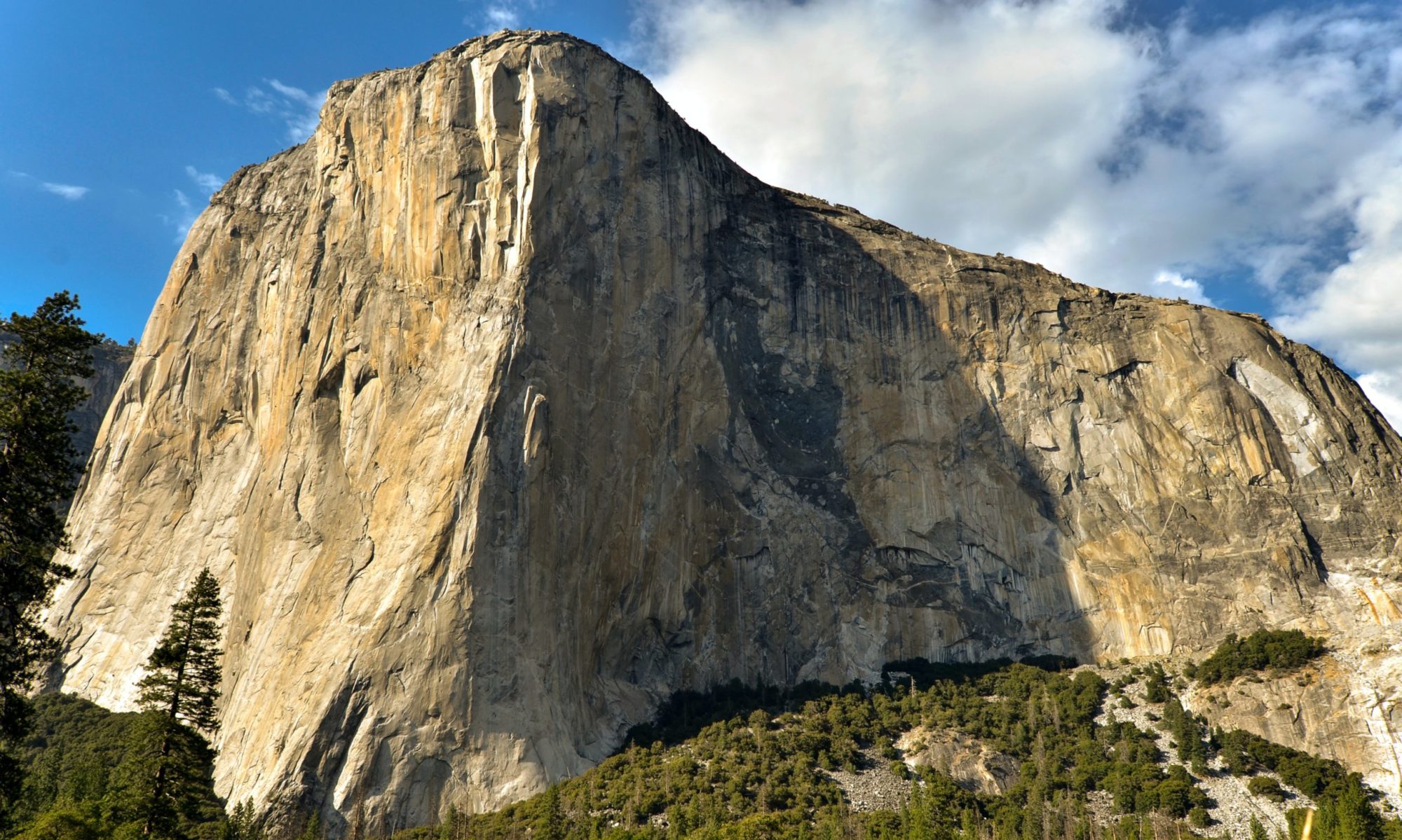Weight and climbing: A science-based approach to kill a long-lived myth
By Dr. Gudmund Grønhaug

Let’s face it: climbers often have some issues with weight and body composition is heavily debated amongst climbers from all around the globe.
For this article, I’m going to try to convince you that all you thought you knew about weight, eating and climbing is wrong!
About me
Who am I to tell you this?
I’m a 47-year-old climber from Norway. I’ve been climbing in the range of 5.13b-5.14b for the past 20 years with around 100 ascents of those grades. Last year I did 8A/+ in Fontainebleau alongside FA of bolted climbs up to 5.14a. But what is more important is that I have been working with research for a decade, and have a PhD in chronic injuries in climbing. Keep reading to learn more about the relationship of injuries, level of climbing performance and body mass index (BMI).
In my PhD research, I presented a study named “Lean and mean? Associations of level of performance, chronic injuries and BMI in sport climbing” (https://bmjopensem.bmj.com/content/5/1/e000437)
As the title suggests, I wanted to see if I could find any scientific proof that being lighter (low BMI) resulted in higher levels of performance and if the heavier (high BMI) had more injuries.
What is body mass index (BMI)?
Ok, so first a few words about BMI.
As we all know, BMI has its limitations regarding prediction of distribution of fat free body mass and percentage of body fat. Used on individual level BMI is useless. Still, this is not a study on individual percentage of body fat. This study used BMI as a tool to understand more about climbers and performance. BMI with all its flaws and problems still is a valid tool in epidemiological studies regarding weight and height.
You do not need to be lighter to be a better climber
Although it may sound counterintuitive; in the study I could not find any associations between BMI, injuries and level of performance.
How can that be?
It has been “known” for ages that being lean and even skinny makes a better climber, right?
As for most topics the reality is a bit more complex than what is shown at first glance. We’ll get to that after a closer look into the science regarding BMI and injuries in climbing.
In a recent systematic review on the influence of BMI on injuries in various sports, there were contradicting and inconclusive findings. It was suggested that BMI alone could not be used to predict onset of an injury, but paired with other variables such as gender, site of injury, training state or separating acute and chronic injuries, BMI may be a strong predictor.
However, a systematic review on athletes from various sports concluded that those with a lower BMI was more prone to injuries regardless of fitness level.
In climbing, the association of BMI, body weight and injuries in climbing varies. Four of the papers concluded that there was no relationship between BMI and climbing injuries. Only one found a relationship. However, neither of the two papers that used body weight alone (instead of BMI) reported a relationship between body weight and injuries in climbing.
So, to sum it up: if we keep to the science, there does not seem to be a connection between BMI and injuries in climbing.
Still, there is a long way to go from research on injuries to levels of performance in the same sport.
Usually what we researchers do is to take our results and compare them with other similar research. Since my research is the first to look at this possible connection of BMI and level of performance in climbing, I have no one to compare my results with. So therefore; the next part is trying to explain why it is perfectly logical that there are no relationship and why you should have that chocolate bar or that extra portion of dinner to get better at climbing!
If we lived in a vacuum, then it would without doubt be beneficial to shave off 10-15 pounds and go climbing. This way we could get strong quickly, or in other words, increase our strength-to-weight ratio.
Should you lose weight to climb better?
It’s commonly thought that it is easier to get a few pounds lighter than a proportionately stronger.
What almost all climbers fail to remember, or what they do not want to think about, is that this gains in strength/weight loss is in a vacuum or for an extremely limited period of time.
Why?
As climbers we rely on our body weight as a training tool as well as a tool for performance. As a training tool our body weight is what we use all the time; for climbing, calisthenics, gymnastics, TRX, running….. As for all other kinds of training our body adapts to the training load we are using while training. A climber at 75kg is training and thus adapting to the load of 75 kg. A climber at 80kg is training and adapting to a higher load, but still is using his bodyweight.
So what happens when you reduce the weight? Well, the raining load decreases. It’s just the same as doing bench presses with a lighter rack. Of course it is easier in the start, that’s a no-brainer. But after a month or two the body has readapted and the relative strength is back to where it was 5 kg ago, just with less fuel in the tank.
All progression in training is depending on a few key elements; training load, training intensity, how often the training is repeated and restitution.
In climbing, using our body weight for training, all of these are more or less affected by how much and what we eat:
Training loads in climbing is our body weight and is heavily dependent on what we eat.
Training intensity is depending on how much fuel you have in the tank and how hard you are able to push yourself while training. If you are on some kind of weight-reduction diet or are under-eating because you fear how much weight you might gain, then you have less fuel in the tank to push yourself while you are training.
How often the training is repeated is depending on both how much you are able to push yourself to go train, but also the quality of life in general, rate of restitution, injuries and sickness and quality of sleep. It is proven beyond any doubt that those who under eat, or are on some kind of weight loss diet are having more sick days of work, more injuries (both acute and overuse), needs more time to heal from injuries, have a lower quality of life and lower sleep quality (that is affecting all of the other parameters as well).
Rate of restitution is depending on how much fuel you got in the tank. A body with a small “storage” of energy will repair minor damages gained while training faster than a body with an energy deficiency. Restitution/recovery might be the most important part of training, and having enough fuel in the tank to restitute fast makes it possible to train more often and harder.
So, all in all, having that extra meal, that chocolate bar or simply just enjoying what you eat and making sure you live a happy life will probably make you a both a better climber and a happier person!
Learn more about nutrition for injury prevention
Learn more about nutrition for injury recovery
Learn more about nutrition for muscle strength and recovery
Learn more about the drawbacks to losing too much weight
Stay healthy, train hard and go smash those numbers!
~Edited by Marisa Michael
~Editor’s note: For more on this topic, see my article in Gym Climber Magazine “Is light weight the right weight?”
~This is general information only and not intended to be medical advice. Always seek the advice of a healthcare professional before undergoing any diet or lifestyle change.
References
Backe S, Ericson L, Janson S, et al. Rock climbing injury rates and assoiciated risk factors in a general climbing population. Scand J Med Sci Sports 2009(19):850-56. doi: 10.1111/j.1600-0838.2008.00851.x
van Middelkoop M, Bruens M, L;, Coert J, H;, et al. Incidence and risk factors for upper extremety climbing injuries in indoor climbers. Int J Sports Med 2015;36:837-42. doi: 10.1055/s-0035-1547224
Josephsen G, Shinneman S, Tamayo-Sarver J, et al. Injuries in bouldering: A prospective study. Wilderness & environmental medicine 2007;18:271-80.
Schlegel C, Büchler U, Kriemler S. Finger injuries of young elite rock climbers. Schweizerische zeitschrift für sportsmedizin und sporttraumatologie 2002;50(1):7-10.
Neuhof A, Hening F, F;, Schöffl I, et al. Injury risk evaluation in sport clmbing. Int J Sports Med 2011;32:794-800. doi: 10.1055-s-0031-1279723-1.jpg
Amoako A, O;, Nassim A, Keller C. Body Mass Index as a Predictor of Injuries in Athletics. Current Sports Medicine Reports: 2017;16(4):256-62. doi: 10.1249/JSR.0000000000000383
Jones B, H;, Hauret K, G;, Dye S, K:, et al. Impact of physical fitness and body composition on injury risk among active young adults: A study of Army trainees. J Sci Med Sport 2017;20:S17-S22. doi: 10.1016/j.jsams.2017.09.015


Want to learn more? Check out our on-demand masterclass Nutrition for Climbers, or our book Nutrition for Climbers: Fuel for the Send.

One Reply to “Do you need to lose weight to climb better?”
Comments are closed.